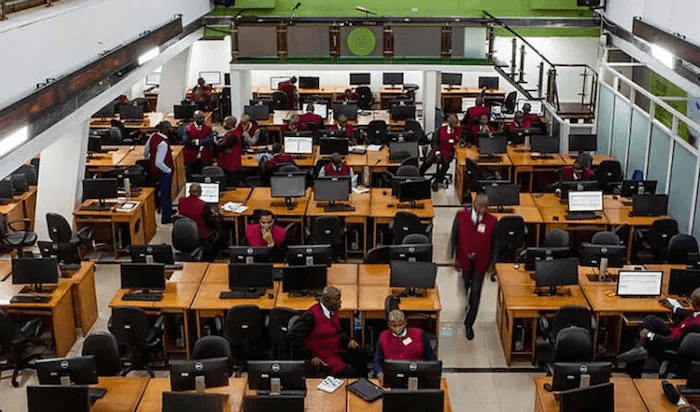Mrs. Ajibola Adesina is a Nurse and Mental Health Expert. She is a graduate of Ladoke Akintola University, Ogbomosho and currently works at Bowen University Teaching Hospital in Ogbomosho, Oyo State. Her work combines clinical practice, research, and public advocacy to create a more supportive environment for mental health patients in Nigeria. She spoke with Hammed Shittu in Ilorin on leveraging innovative research and technology to enhance mental health care and her vision for the future of mental health services in Nigeria and beyond. Excerpts:
Can you speak a bit about your background and what inspired you to pursue a career in nursing and mental health care?
Growing up in Nigeria, I witnessed first-hand, the devastating impact that mental health issues can have on individuals and families. Despite the prevalence of these issues, there was a significant stigma surrounding mental health, particularly for adolescents. This deeply affected me, as I saw many young people struggling in silence without the support they needed.
My interest in health care was aroused by a neighbour of ours, who was a dedicated nurse. Watching her care for patients with compassion and skill inspired me to pursue a career in nursing. I, however, chose to specialize in mental health care because I realized that addressing the mental well-being of adolescents is crucial for fostering healthy and productive adults. While studying at the Ladoke Akintola University of Technology, I became increasingly aware of the gap in mental health services for young people. This awareness fuelled my desire to make a difference. Graduating at the top of my class was a proud moment, but it also underscored my responsibility to use my education and skills to effect change. At Bowen University Teaching Hospital, I have had the opportunity to not only provide clinical care but also engage in research and public advocacy. Each day, I am driven by the stories of the adolescents I work with and the possibility of creating a more supportive and understanding environment for mental health in our society. My ultimate goal is to revolutionize mental health care for adolescents in Nigeria, ensuring that no young person has to suffer in silence.
Could you explain your work around adolescent mental health and what progress has been made?
My work on adolescent mental health focuses on leveraging technology to enhance early detection, personalized interventions, and continuous support for mental health issues. Through the use of AI-driven tools, mobile apps, and telemedicine, my research aims to improve accessibility and effectiveness of mental health care for adolescents. Notably, I have published several papers to educate the public on these advancements and the importance of integrating technology in mental health strategies. Progress includes successful case studies demonstrating the efficacy of AI tools in early diagnosis and the increased acceptance of mobile health solutions among adolescents and their caregivers.
There still appears to be a significant gap in effective mental health care in the country. What are your thoughts on this?
Truly, the government has made efforts aimed at improving mental health care in the country. These efforts include signing of the Mental Health Bill into law, which seeks to enhance access to effective, quality mental health services. However, systemic issues such as insufficient funding, inadequate infrastructure, and a shortage of mental health professionals still persist, and all these hinder access to mental health care for Nigerians. Due to these challenges, a substantial proportion of mental health patients in the country still seek unorthodox interventions. Another troubling thing to note is that mental health crisis among adolescents in Nigeria has escalated, with increasing rates of depression, anxiety, and stress-related disorders affecting this vulnerable population. As mental health challenges become more prevalent in early life, there is a critical need for innovative solutions that can be implemented on a national scale. It is against this background that I decided to work on a project to transform adolescent mental health care through a holistic approach that integrates cutting-edge research with advanced technological solutions, focusing on early detection, intervention, and sustainable management practices.
As a nation, what do you believe we are not doing right to adequately address mental health challenges effectively? What changes or improvements would you recommend?
Nigeria faces several challenges in addressing mental health issues effectively. Despite an increase in the health sector budget, mental health remains significantly underfunded, with allocations far below recommended levels. The country also suffers from deficient infrastructure, with many primary healthcare centres under-equipped and poorly maintained. Additionally, there is a severe shortage of trained mental health professionals, exacerbated by the emigration of many specialists. Public awareness and education about mental health are also lacking, leading to pervasive stigma and misinformation. Lastly, while policies such as the National Mental Health Policy and the Mental Health Bill exist, their implementation is hampered by insufficient resources and political will. The way out is for us to increase funding for mental healthcare, invest heavily in requisite infrastructure, adopt technology-based interventions, invest more in training of healthcare providers and do more to retain our specialists who continue to migrate in search of greener pasture. We must equally engage in nationwide and comprehensive public awareness and education about mental health.
What does attention to mental health look like in the Western countries and are they getting it right or does this topic form a global challenge?
In Western countries, attention to mental health often includes substantial funding, comprehensive policies, and widespread public awareness campaigns. Countries like the United States, the United Kingdom, and Canada have established extensive mental health services integrated into their healthcare systems, promoting early intervention and access to care. These nations have also worked to reduce stigma through education and advocacy, which encourages individuals to seek help. However, despite these efforts, mental health remains a global challenge. Issues such as rising mental health disorder rates, long wait times for services, and disparities in care access persist even in these well-resourced countries. This indicates that while Western countries have made significant strides, there are still considerable challenges to address in the realm of mental health globally.
Can you share with us insight into your research in mental health?
My career began with groundbreaking research on stress management among healthcare professionals, and I have published several papers to educate the public on this critical issue. Recently, my focus has shifted to understanding and mitigating mental health challenges in adolescents. This work is particularly crucial as early interventions can significantly alter life trajectories. My work also focuses on how we can leverage technology to improve mental health outcomes for young people. My aim is to set a precedent that can be replicated across various healthcare settings, both locally and globally.
How best can Nigeria use technology to fight mental health mostly in children?
Nigeria can leverage technology to fight mental health issues in children by implementing AI-powered diagnostic tools, mobile mental health apps, and telemedicine platforms. AI can help in early detection by analysing behavioural patterns and identifying signs of mental health issues. Mobile apps can provide accessible mental health resources, interactive therapies, and real-time support, making it easier for children and their caregivers to manage mental health conditions. Telemedicine platforms can connect children with mental health professionals, especially in underserved areas, improving access to care and reducing the stigma associated with seeking help.
How can Nigeria and most Western countries use outcomes of research studies like yours to improve healthcare experiences for their people?
Nigeria and Western countries can use research experiences to combat mental health issues by integrating AI-powered diagnostic tools for early detection, mobile apps for accessible mental health resources, and telemedicine platforms to enhance access to care. Training healthcare providers in using these technologies and ensuring adequate funding for mental health initiatives can significantly improve outcomes. Collaboration between tech developers and healthcare professionals is essential to create effective, scalable solutions tailored to diverse populations.
You plan to undertake a research study on ‘Enhancing Adolescent Mental Health Outcomes through Integrated Technology and Research Innovations’ in the United States. What’s the inspiration behind this and the primary goal of the research work?
The research seeks to explore how advanced AI tools, mobile health applications, and telemedicine can be leveraged to address the rising mental health challenges among adolescents. By integrating these technologies with existing healthcare systems, the aim is to provide early detection, personalized interventions, and continuous support, making mental health care more accessible and effective for young people. My previous publications have focused on educating the public about these innovative solutions, highlighting their potential to transform adolescent mental health care and improve outcomes. However, my proposed research initiative in the United States aims to further these efforts and facilitate the implementation of scalable and impactful solutions globally.



